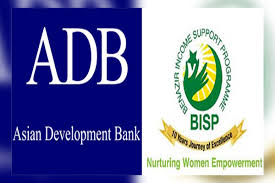By Muhammad Luqman
The Manila-based Asian Development Bank (ADB) has approved a $200 million loan as additional financing to support the Benazir Income Support Programme (BISP).
BISP , the federal unconditional cash transfer poverty reduction program in Pakistan was launched in July 2008 by PPP-led government.
The programme, which is considered one of the largest social protection programs in South Asia, is part of present government’s flagship Ehsas program to reduce poverty and inequality.
This additional finance will not only support cash transfers but also help to strengthen BISP’s institutional measures.
PM Imran Khan inaugrates Ehsaas Langar Scheme today in Islamabad."Ehsaas Langar" is the first scheme being set up under public-private partnership. Langar will be extended in other parts of the country to provide everyday meals to people in need. pic.twitter.com/LNuIO5pVh6
— BISP (@bisp_pakistan) October 7, 2019
According to a press release issued by the Manila-based lending agency, an ADB-financed social protection development project, approved in 2013, had enabled the enrollment of over 855,000 beneficiaries of the BISP.
They added that the additional financing would “continue to support cash transfers as well as help BISP implement institutional strengthening measures”.
“Social protection programs like the BISP are crucial to ensure that the poorest segments of the population do not go further into poverty, especially at a time when the country is facing difficult macroeconomic challenges,” said the Director of Public Management, Financial Sector, and Trade for ADB’s Central and West Asia Department, Tariq Niazi.
He added that the ADB was committed to helping the Pakistan government “implement alternative modalities for social protection and poverty reduction such as asset transfer programs that promote improved human capital and reduce intergenerational poverty”.
Additionally, ADB Country Director for Pakistan, Xiaohong Yang, said the additional financing would “support further institutional strengthening and improvements in financial management and controls in BISP”.
“A policy research unit will also be established within BISP to help monitor and improve the performance of ongoing programs and design new cost-effective and evidence-based initiatives such as poverty graduation programs and conditional cash transfers for health and nutrition in line with global best practices,” he added.















